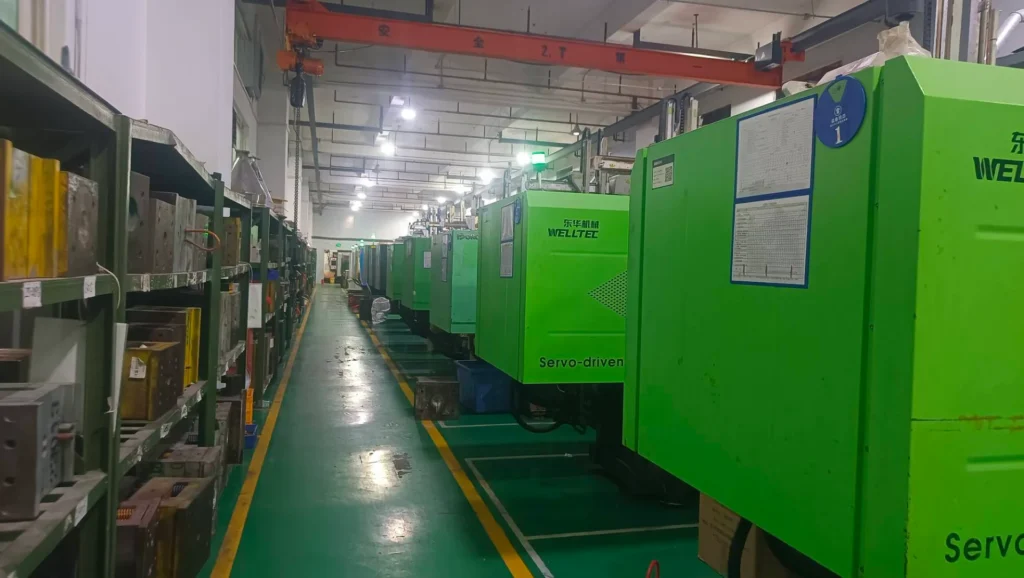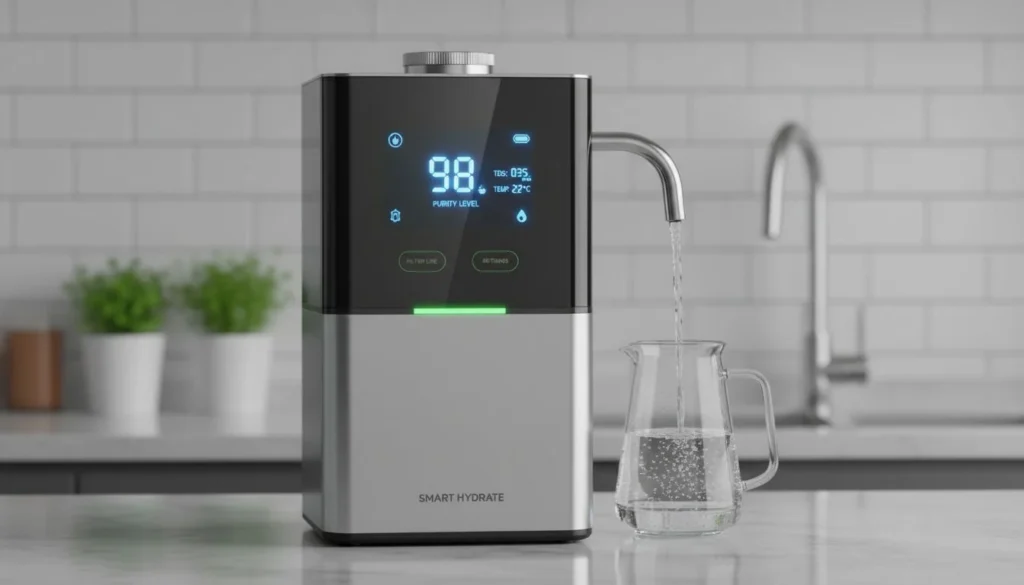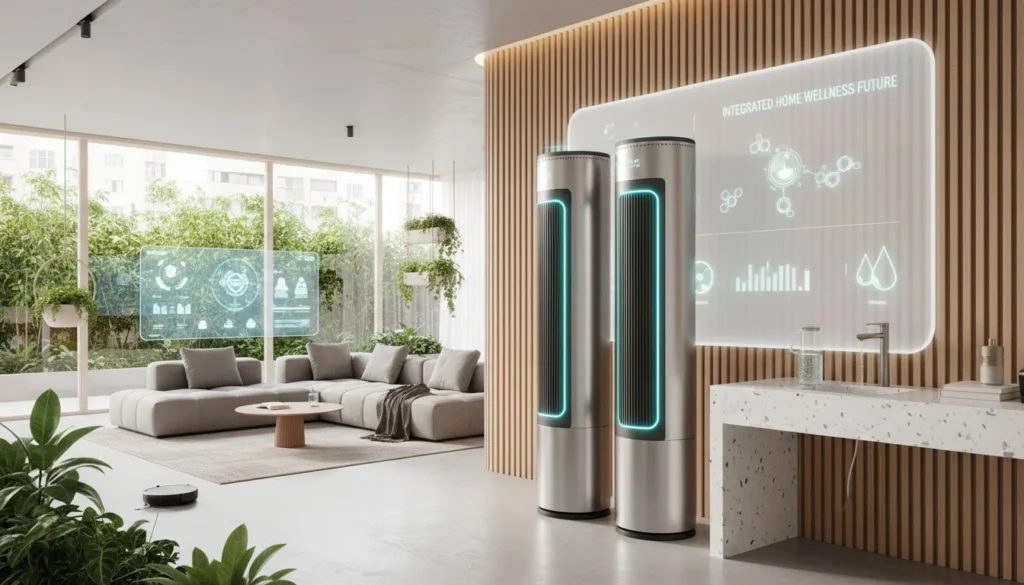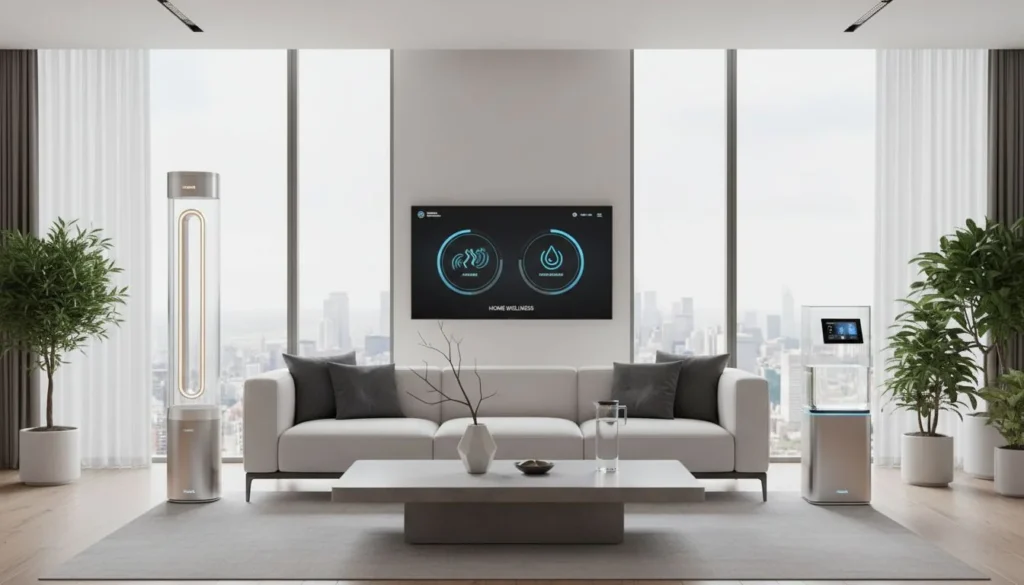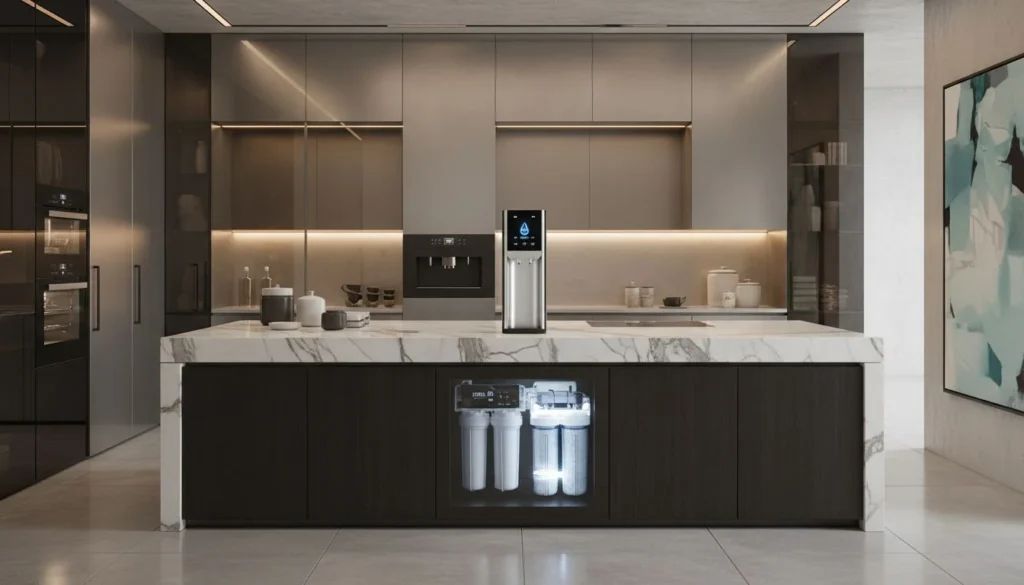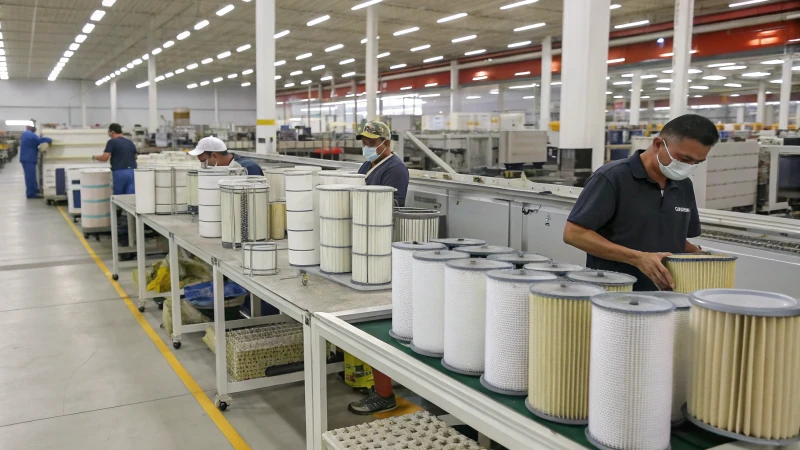
Curious about top air filter makers in Mexico? People often search for this information. You're really not the only one looking!
Mexico's air filter industry has grown rapidly in recent years. Businesses look for new suppliers instead of traditional ones. Important companies like Gonher de México focus on different kinds of filters. These companies tackle tough supply chain problems. Let's explore the leading manufacturers and their offerings!
As I moved through the busy world of air filters, I became fascinated by the changing scene. Companies like Gonher de México grabbed my attention. They don't just participate; they change the rules. I recall when I first discovered their wide range of filters. They offer oil and cabin filters and handle global trade challenges. It's like watching an exciting sports event happen right there in front of me!
Gonher de México is a leading air filter manufacturer in Mexico.True
Gonher de México specializes in various filter types, establishing itself as a key player in the industry.
Mexico's air filter market is stagnant and unchanging.False
The air filter manufacturing industry in Mexico is evolving rapidly, driven by new suppliers and trade dynamics.
What Types of Air Filters Are Manufactured in Mexico?
Do you ever think about where your air filters originate? Let's explore the exciting story of air filters produced in Mexico. We will look at oil filters and cabin filters. Discover the reasons behind this interesting change in production. These filters really have an important role in our lives. Maybe this will surprise you.
In Mexico, you find many types of filters produced. These include oil filters, air filters, cabin filters and gasoline filters. Manufacturers focus on top quality. The country is very close to the U.S. market. This location is strategic for production. It really matters where they produce.
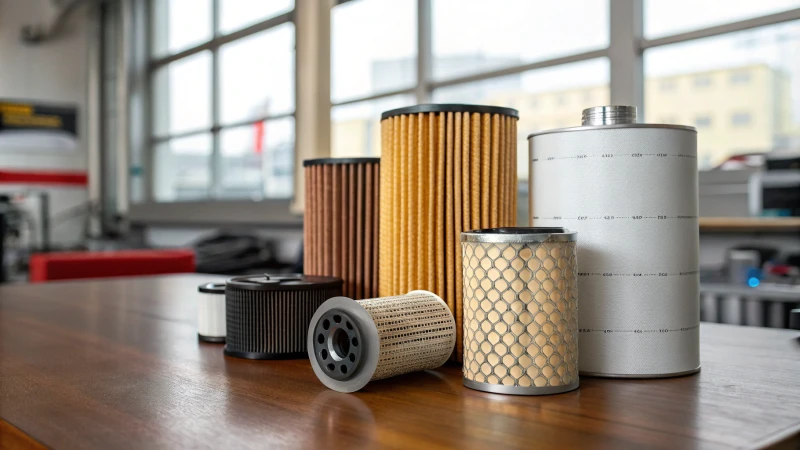
Overview of Air Filters Manufactured in Mexico
Mexico has become a notable player in the air filter manufacturing industry, especially in recent years as companies seek alternatives to China. While many manufacturers still primarily operate in China, Mexico's geographical advantage and evolving manufacturing capabilities are drawing attention.
Types of Air Filters Produced:
-
Oil Filters: If you've had an oil change, you know oil filters are important for your vehicle. In Mexico, workers craft these filters carefully to ensure engine longevity by filtering out contaminants from engine oil.
-
Air Filters: Clean air in our vehicles is necessary. Manufacturing plants in Mexico focus on making efficient and durable air filters. Brands like Gonher de México1 specialize in these products.
-
Cabin Filters: When stuck in traffic, we wish for fresh air inside our cars. Cabin filters help keep the air clean inside by blocking dust, pollen, and pollution.
-
Gasoline Filters: Imagine dirt entering your fuel system! Gasoline filters from Mexico are designed to stop these impurities and protect your engine for a smoother drive.
Factors Influencing Air Filter Production in Mexico
The shift towards Mexican manufacturing is influenced by several factors:
- Proximity to the U.S. Market: Being close to the U.S. market, the largest buyer of air filters, speeds up shipping and reduces costs.
- Trade Policies: Recent U.S.-China trade tensions caused companies to reconsider supply chains, leading to increased production in Mexico.
- Cost Considerations: Production costs in Mexico are 15-20% higher than in China; however, savings on tariffs and shipping time attract many businesses.
Quality and Reliability of Mexican-Made Air Filters
Research shows that Mexican air filters are becoming known for high quality. Some manufacturers still use materials from China; however, many innovate to improve reliability and performance.
| Filter Type | Common Uses | Key Features |
|---|---|---|
| Oil Filters | Automotive engines | High dirt holding capacity |
| Air Filters | Vehicles and industrial applications | Enhanced airflow |
| Cabin Filters | Passenger vehicles | Activated carbon options |
| Gasoline Filters | Fuel systems | High filtration efficiency |
Future Trends in Air Filter Manufacturing
The future looks promising for air filter production as more companies adopt the China+1 strategy; this trend is expected to continue towards increasing production capabilities in Mexico. This will not only benefit local economies but also support a more diversified supply chain.
In addition, as consumer preferences shift towards sustainability, manufacturers are likely to innovate further by incorporating eco-friendly materials into their production processes. Keeping an eye on these developments can provide insights into future purchasing decisions.
For those interested in exploring specific brands or types of filters made in Mexico, a search for air filter manufacturers2 can yield useful results. Furthermore, understanding market trends3 can help consumers make informed decisions about their air filter needs.
Mexico produces oil filters for both domestic and international markets.True
Oil filters manufactured in Mexico are designed to filter contaminants, ensuring engine longevity for both local and global consumers.
Cabin filters in Mexico are only used in commercial vehicles.False
Cabin filters produced in Mexico are crucial for maintaining air quality in passenger vehicles as well, not just commercial ones.
How Are Trade Policies Affecting Air Filter Production?
Curious about how trade rules affect our daily air filters? I know a lot about the air cleaning business. Tariffs and changes in supply routes influence many things. They influence production costs. They also influence how companies decide to sell. This is truly a fascinating topic!
Trade policies have a key role in air filter production. Manufacturers adjust their sourcing strategies and costs. Rising tariffs push many to move to Mexico. They want to stay near the US market. They also seek to manage costs well. This shift shows a bigger trend in the industry. The industry adapts to new economic realities.
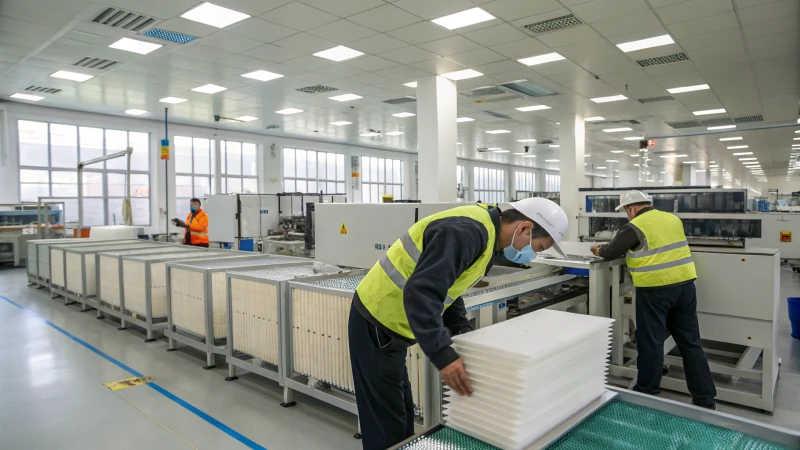
The Shift of Production Locations
Trade policies greatly affect air filter production. They influence sourcing strategies and costs. Rising tariffs lead many manufacturers to move to countries like Mexico, where proximity to the US market can mitigate tariff impacts. This movement helps reduce expenses and meet market demands. It also aligns with the emerging China +1 supply chain strategy, which is gaining traction among businesses seeking to diversify their sourcing.
The shift involves more than just business; it involves adapting to a constantly changing landscape. The effects are significant for everyone involved.
Cost Implications of Tariffs
The imposition of tariffs has raised production costs significantly. According to estimates, transitioning production to locations outside China may still lead to a 15-20% increase in total costs due to the necessity of importing key materials such as meltblown fabric and precise molds from China.
| Cost Factor | China Production | Mexico Production |
|---|---|---|
| Raw Material Costs | Lower | Higher |
| Labor Costs | Lower | Competitive |
| Tariff Impact | None | Increased |
| Transportation Costs | Moderate | Lower |
This table illustrates the potential cost structure shifts as companies evaluate their production strategies in light of new trade policies.
Long-Term Market Dynamics
In the long run, the air filter industry is expected to adapt further to these changes. As businesses increasingly seek more sustainable practices and diverse supply chains, the air filter production landscape will likely continue evolving. The growing demand for cleaner air solutions also means that companies may invest in local production capabilities to meet consumer expectations.
Moreover, some high-quality filters require specialized engineering knowledge, which means that even as factories move production away from China, expertise will still need to be sourced from Chinese engineers for complex projects. Companies must navigate these complexities while adhering to evolving trade policies.
Conclusion (Not Included)
While it’s essential to monitor the ongoing developments in trade regulations and their impact on air filter production, businesses must remain agile and ready to adapt to changes in sourcing strategies, costs, and market demands. For further insights into the implications of these trade policies on air filter manufacturing and broader industry trends, consider exploring related articles4.
Tariffs have increased air filter production costs significantly.True
Tariffs have raised production costs by 15-20% when shifting from China to other countries.
Most air filter manufacturers are now based in Mexico.False
While manufacturers are considering Mexico, most are still primarily based in China due to existing infrastructure.
What Challenges Do Mexican Manufacturers Face in Sourcing Materials?
I move through the complicated world of manufacturing in Mexico. I face many challenges. Many manufacturers have trouble when getting materials. Problems arise from transportation issues. Regulations add to difficulties. Understanding these obstacles is very important for success. Success depends on this knowledge.
Mexican manufacturers face many challenges when getting materials. Customs delays create logistical problems. Language differences cause misunderstandings. Quality control issues affect how well their products work. Complicated regulations cause compliance problems. Economic factors like currency changes influence costs. Costs are really affected by these changes.
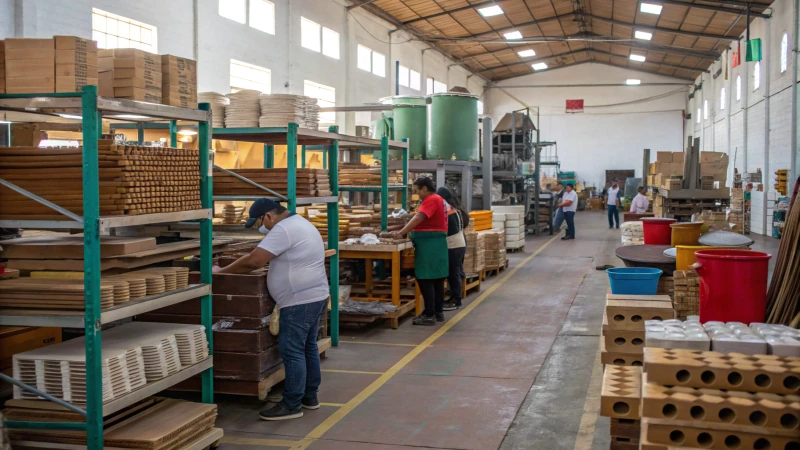
Logistical Challenges in Material Sourcing
Logistics is one of the largest obstacles for me as a manufacturer. The transportation of raw materials from international suppliers can be complicated due to various factors, including customs regulations and shipping delays. These logistical hurdles can lead to increased costs and production delays, ultimately affecting my ability to meet customer demands.
For example, I once waited for critical components from China. Customs rules and shipping delays turned an easy process into a tiresome challenge. These delays increased costs and also risked my ability to fulfill customer needs. This is a big problem.
Air filter manufacturers are moving their supply chains to Mexico to avoid high tariffs imposed by the U.S. government on Chinese goods. However, they still face challenges in sourcing key materials like meltblown fabric and precise molds, which are predominantly produced in China.
Language and Cultural Barriers
Language barriers sometimes feel like walls between me and my suppliers. Many partners in Mexico have limited English skills, resulting in misunderstandings and order mistakes. This barrier can affect everything from negotiation processes to quality assurance checks. Once, a miscommunication about product details led to a shipment that failed our quality standards. This taught me about the value of clear communication—very clear communication.
Additionally, cultural differences may impact business practices. Understanding local customs is crucial for trust and smooth operations. Building trust isn’t a mere formality; it is vital for long-term success.
Quality Control Issues
Quality control often causes me concern about maintaining material standards. In the air filtration industry, materials' quality affects product performance directly. I once received materials that didn't meet our strict standards, forcing us to stop production—it was embarrassing.
To tackle these risks, I use strict quality control methods, including regular supplier site audits and thorough material testing. Over time, I have built a reliable supplier network committed to quality—a steady supply of high-quality materials is crucial.
| Challenge | Impact on Manufacturing | Potential Solutions |
|---|---|---|
| Logistical Delays | Increased costs and production time | Optimize supply chain management |
| Language Barriers | Miscommunication and errors | Hire bilingual staff or interpreters |
| Quality Control Issues | Inconsistent product performance | Implement rigorous quality checks |
Regulatory Compliance
Navigating Mexico's regulatory scene sometimes feels daunting. Following local labor laws, environmental rules, and industry standards is essential for compliance. I remember a time when non-compliance led to avoidable fines—better regulation knowledge could have prevented this.
To comply, I prioritize understanding the regulatory framework with legal counsel and consultants who specialize in Mexican manufacturing laws being invaluable resources. Regular staff training sessions also keep everyone updated on compliance.
Economic Factors
The Mexican economy feels constant shifts from trade deals and currency changes that influence several external factors impacting manufacturers like myself—changes in U.S.-Mexico trade relations can affect tariffs and import duties on materials sourced from abroad.
Additionally, currency volatility can impact the costs of imported materials significantly—monitoring economic signs very closely helps reduce risks; it’s quite useful.
Financial tools like hedging offer protection from currency volatility while diversifying suppliers brings flexibility during uncertain times—flexibility is important.
Understanding these challenges helped me improve my sourcing strategies significantly; my competitiveness in the global market has grown as each challenge presents an opportunity for growth.
Logistical challenges increase costs for Mexican manufacturers.True
Logistical hurdles such as shipping delays and customs issues raise operational costs for manufacturers in Mexico, affecting their competitiveness.
Language barriers do not affect material sourcing in Mexico.False
Language barriers significantly hinder communication with suppliers, leading to errors and mismanagement in material sourcing for manufacturers in Mexico.
Which Companies Are Leading the Market in Innovation and Sustainability?
In a world where sustainability and innovation really matter, I find it inspiring to see companies boldly leading the way. Let's explore these transformative leaders. They are paving the path for a greener future.
Companies such as HisoAir, Tesla, Unilever and Siemens lead in innovation and sustainability. They focus on eco-friendly actions. They drive technological progress that helps the planet and their profits. Learn from their powerful projects. Gain insights into eco-friendly business methods.
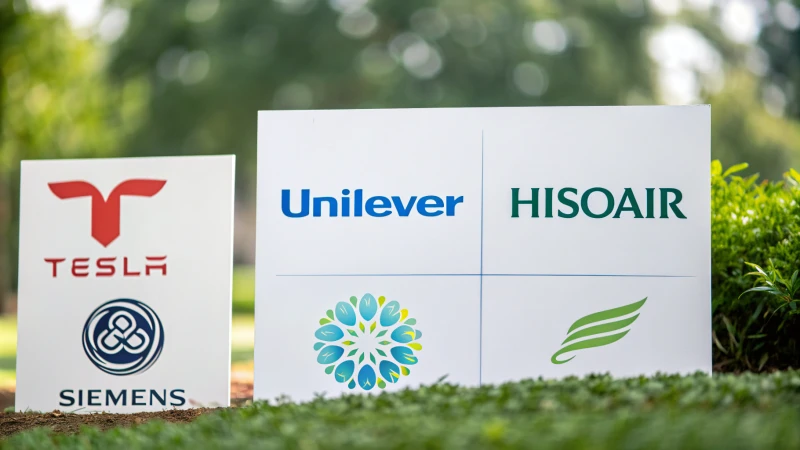
The Rise of Sustainable Innovators in Business
Sustainability in business is essential. I think a lot about a chat with a friend in environmental science. We discussed companies today having a special opportunity. They need to meet ethical duties and also relate to people who care about Earth. Firms like HisoAir5 show this well in the air purification world, where technology and sustainability converge.
Companies to Watch
| Company Name | Sector | Innovation Focus | Sustainability Practices |
|---|---|---|---|
| HisoAir | Air Purification | Decibel Cancellation™ | High-efficiency filters, eco-friendly materials |
| Tesla | Automotive | Electric Vehicles | Zero-emission production processes |
| Unilever | Consumer Goods | Sustainable sourcing | Commitment to reducing plastic waste |
| Siemens | Engineering | Smart Infrastructure | Energy-efficient manufacturing |
These companies do not just stir things up; they very much change how we see business. For example, Tesla's electric vehicles impress me greatly as they reduce carbon emissions and push an entire industry to adopt greener habits. My first Tesla ride felt like a small triumph for the planet.
Challenges and Opportunities
Innovation in sustainability has its problems. Industry talks teach me about the obstacles companies grapple with, such as regulation and supply chain issues that often feel overwhelming. Yet, the potential for long-term gains is huge. I really respect those investing a lot in research and development. Such dedication makes me optimistic about the future.
The Role of Technology
This movement stands on technology. HisoAir's strategy often crosses my mind as they use advanced designs to clean the air while still protecting the environment. Innovative solutions can really decrease ecological harm. Moreover, smart technologies help use resources wisely, guiding us all towards more sustainable business models.
Conclusion: The Future of Sustainability in Business
Sustainability becomes more important each day, and I feel increasingly hopeful that more businesses will pick eco-friendly practices. Leaders set examples for others, paving the way for a greener economy. Watching these trends is crucial for those keen on sustainable investments and actions; it's beyond business—it's about building a better world for future generations.
HisoAir uses eco-friendly materials in air purification.True
HisoAir incorporates eco-friendly materials in its products, enhancing sustainability in air purification while maintaining high performance.
Tesla's production processes are zero-emission.True
Tesla is committed to zero-emission production processes, significantly reducing environmental impact in the automotive sector.
Conclusion
Explore Mexico's growing air filter manufacturing sector, highlighting key players like Gonher de México and the impact of trade dynamics on production strategies.
-
Explore various air filter options available in Mexico and discover top manufacturers for your needs. ↩
-
Explore various air filter options available in Mexico and discover top manufacturers for your needs. ↩
-
Explore various air filter options available in Mexico and discover top manufacturers for your needs. ↩
-
Explore this link for a deeper understanding of supply chain strategies post-trade war and how they relate to air filters. ↩
-
Discover top companies excelling in sustainability and innovation practices that inspire others to follow suit. ↩


